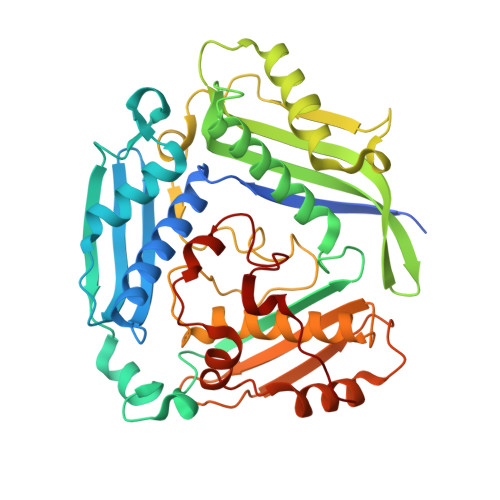Formaldehyde regulates S -adenosylmethionine biosynthesis and one-carbon metabolism.
Pham, V.N., Bruemmer, K.J., Toh, J.D.W., Ge, E.J., Tenney, L., Ward, C.C., Dingler, F.A., Millington, C.L., Garcia-Prieto, C.A., Pulos-Holmes, M.C., Ingolia, N.T., Pontel, L.B., Esteller, M., Patel, K.J., Nomura, D.K., Chang, C.J.(2023) Science 382: eabp9201-eabp9201
- PubMed: 37917677
- DOI: https://doi.org/10.1126/science.abp9201
- Primary Citation of Related Structures:
8SWA - PubMed Abstract:
One-carbon metabolism is an essential branch of cellular metabolism that intersects with epigenetic regulation. In this work, we show how formaldehyde (FA), a one-carbon unit derived from both endogenous sources and environmental exposure, regulates one-carbon metabolism by inhibiting the biosynthesis of S -adenosylmethionine (SAM), the major methyl donor in cells. FA reacts with privileged, hyperreactive cysteine sites in the proteome, including Cys120 in S-adenosylmethionine synthase isoform type-1 (MAT1A). FA exposure inhibited MAT1A activity and decreased SAM production with MAT-isoform specificity. A genetic mouse model of chronic FA overload showed a decrease n SAM and in methylation on selected histones and genes. Epigenetic and transcriptional regulation of Mat1a and related genes function as compensatory mechanisms for FA-dependent SAM depletion, revealing a biochemical feedback cycle between FA and SAM one-carbon units.
- Department of Chemistry, University of California, Berkeley, Berkeley, CA 94720, USA.
Organizational Affiliation:




















